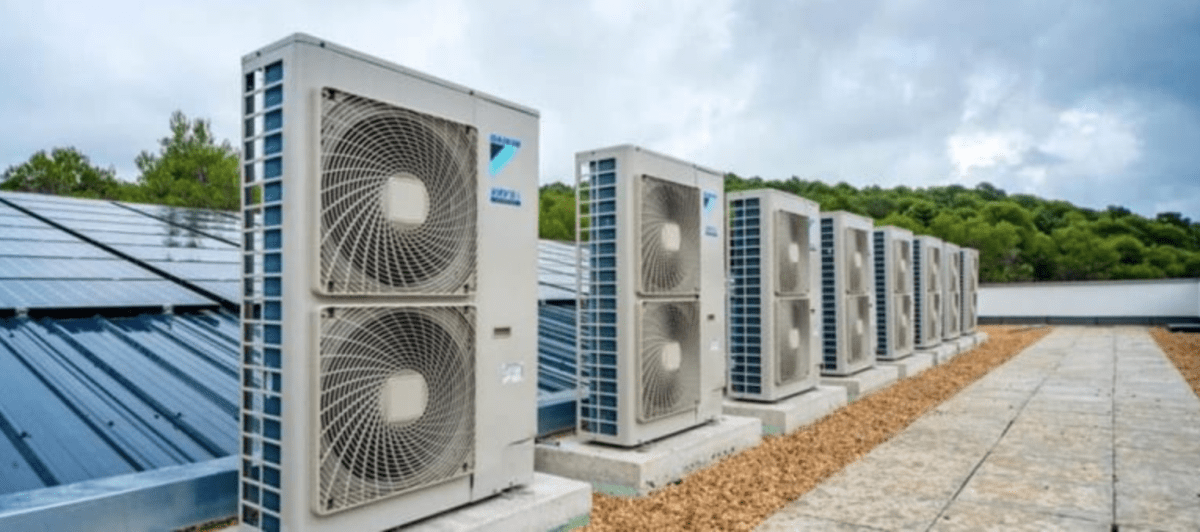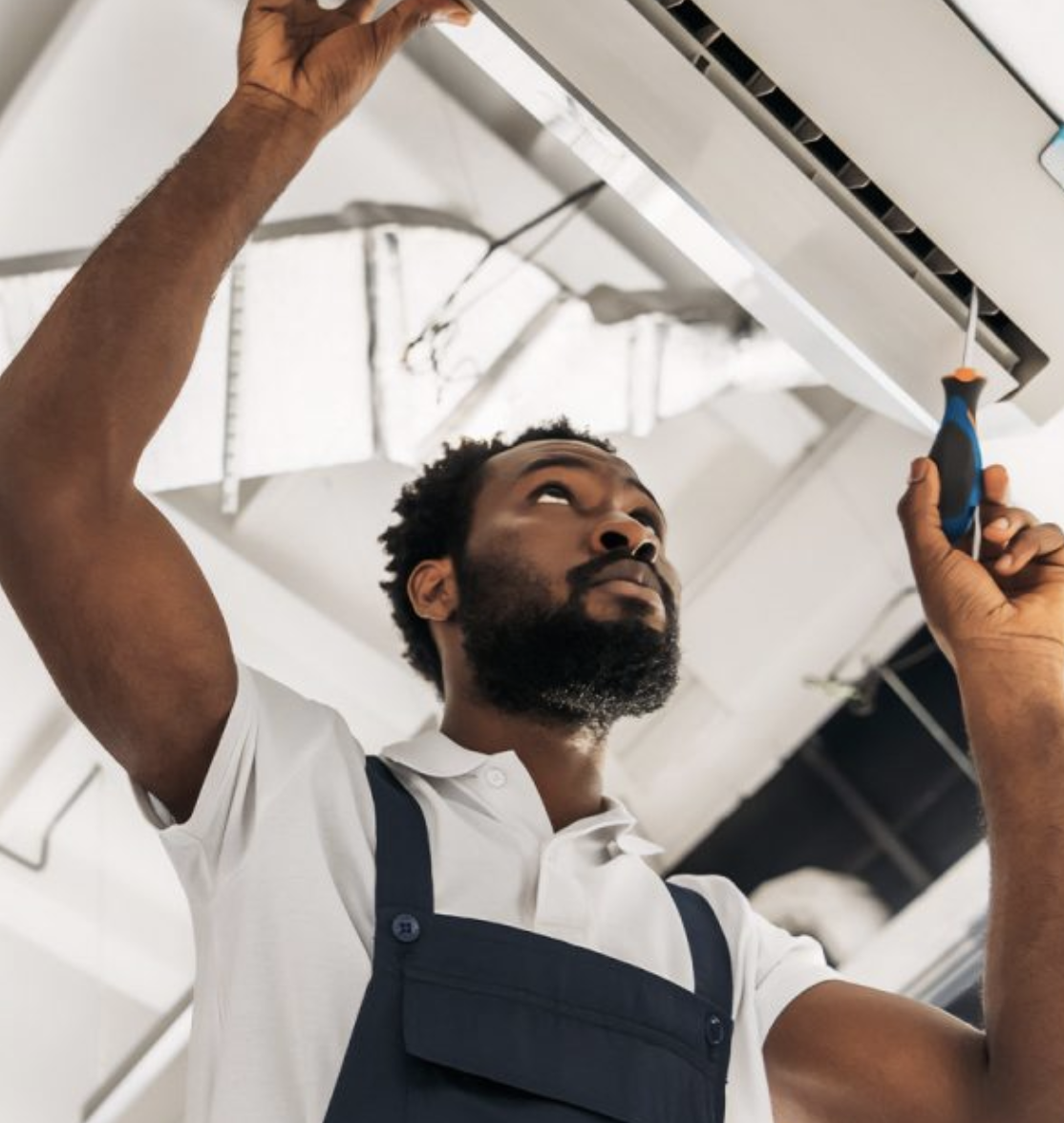VRF Air Conditioning: A Guide
Have you heard of VRF Air Conditioning? If you’re in the market for a new air conditioner, for your home, or business, VRF might be something you’ve seen mentioned, and wonder if it’s the best option for you.
We’re going to explain what VRF is. How it works in Australia and whether it’s the right option for your home or business.
So, let’s get into it, what is VRF air conditioning?


What is VRF Air Conditioning?
VRF – Variable Refrigerant Flow. It’s a type of HVAC (Heating, Ventilation, and Air Conditioning) system that offers precise control over the flow of refrigerant to different indoor units in a building. In essence, it is a ductless, expansive HVAC system with high-capacity performance that can heat, or cool, a building.
With VRF you can cool or heat specific areas to different temperatures simultaneously. And, they’re energy-efficient, quiet, suitable for various businesses and buildings, and adaptable for retrofitting in existing structures.
Have you heard of VRF Air Conditioning? If you’re in the market for a new air conditioner, for your home, or business, VRF might be something you’ve seen mentioned, and wonder if it’s the best option for you.
We’re going to explain what VRF is. How it works in Australia and whether it’s the right option for your home or business.
So, let’s get into it, what is VRF air conditioning?
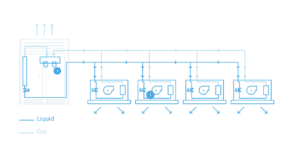

Overall, VRF air conditioning systems are known for their efficiency, comfort, and flexibility, making them a popular choice in many commercial and residential buildings where precise climate control and energy savings are important.
What is the difference between AC and VRF air conditioning?
Traditional AC systems rely on a split system with an indoor evaporator unit and an outdoor condensing unit, mainly designed for cooling.
In contrast, VRF systems use advanced technology to modulate the flow of refrigerant for both cooling and heating, and they often serve multiple indoor units independently.
This enables precise temperature control and zones within a building. VRF systems are known for their energy efficiency due to their ability to match the exact demand for heating or cooling, while traditional AC systems often operate at a fixed capacity.
VRF systems also offer greater flexibility, adaptability to different building types, and the option for heat recovery.
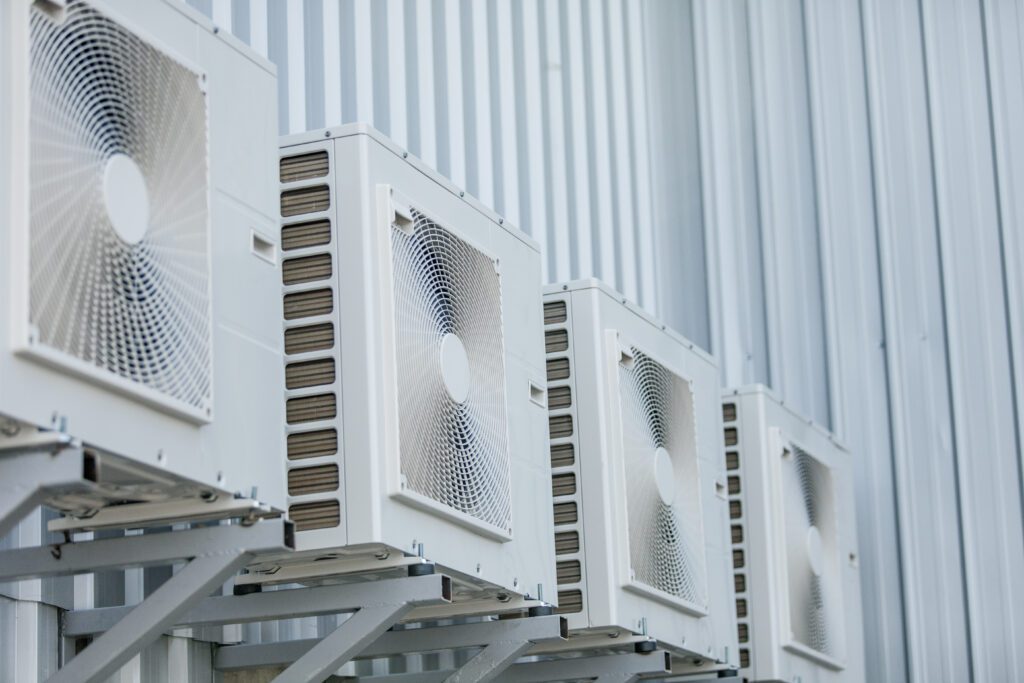

Is VRF better than a split AC?
Tricky one, as it depends on your needs, the size and usage of your space, and your budget.
Here are some factors to consider when comparing them:
- Zoning and Control: VRF systems excel in individual temperature control and zoning for different areas within a building. Split AC systems offer less zoning flexibility.
- Energy Efficiency: VRF systems are generally more energy-efficient than split AC systems.
- Flexibility: VRF systems are more adaptable and flexible with installation, making them suitable for a wide range of building types and sizes. Split AC systems may be limited in terms of configuration and installation options.
- Heating: VRF systems can provide cooling and heating. Some VRF systems even have heat recovery capabilities. Split AC systems are primarily designed for cooling and may require a separate heating system.
- Cost: VRF systems are typically more expensive to install than split AC. However, the increased energy efficiency and control they offer can lead to long-term cost savings on energy bills and maintenance.
- Noise: VRF systems are quieter than split AC systems.
So, is VRF better than split AC – it depends on your priorities. You’ll need to assess your specific requirements and consult with HVAC professionals to determine which option is the best fit for your situation.
Don’t forget – we can help!
Some examples of VRF air conditioning
VRF air conditioning systems are manufactured by many international HVAC manufacturers such as Daikin, Mitsubishi, Fujitsu General, LG Electronics, Samsung, Panasonic, Toshiba and Carrier.
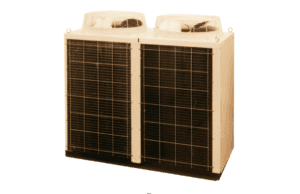

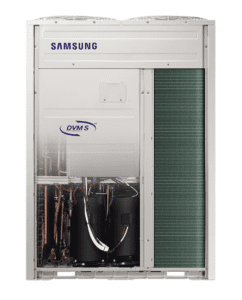

If your home, or office, needs a new air conditioning system, and you’re wondering if VRF might be right for you, our air-conditioning experts can help you select a system that will suit your needs.
What is VRF Air Conditioning? | It’s a type of HVAC (Heating, Ventilation, and Air Conditioning) system that offers precise control over the flow of refrigerant to different indoor units in a building. In essence, it is a ductless, expansive HVAC system with high-capacity performance that can heat, or cool, a building. |
What is the difference between AC and VRF air conditioning? | There are a lot of differences. VRF is a newer technology and offers precision zoning, improved energy efficiency, less noise production and flexible installation. However, it’s typically more expensive for initial outlay. |
Is VR better than a split AC? | It depends on your needs. It’s a more advanced technology and more flexible, but it can be more expensive in initial outlay. |
Find out more here, or give us a call 1300 306 847
Need More Help?
If you are still unsure of whether you need a domestic or commercial cooling unit, please get in touch with our team of expert technicians. We will run through your specific business requirements and help you decide which type of fridge or freezer is right for your needs.


